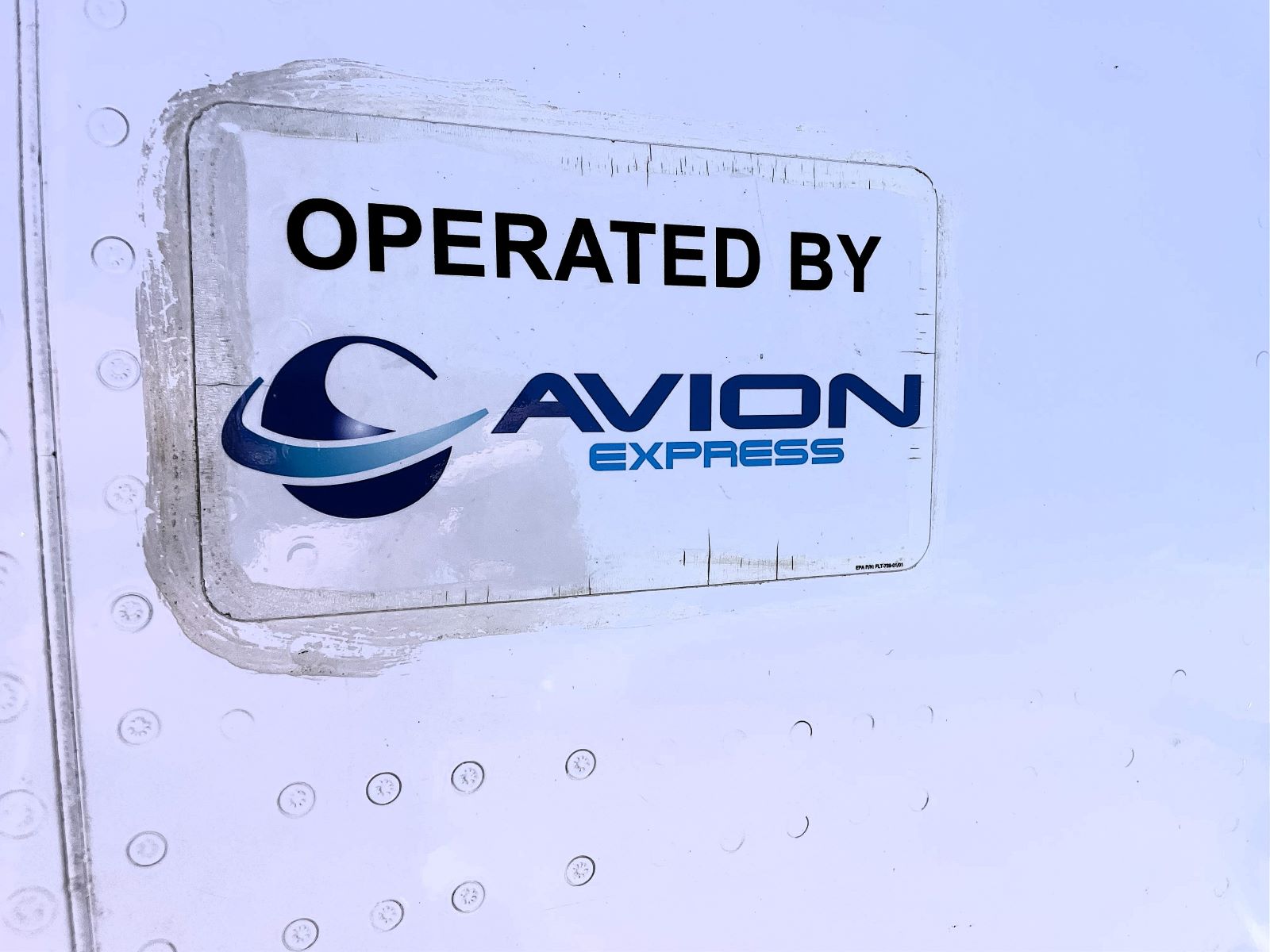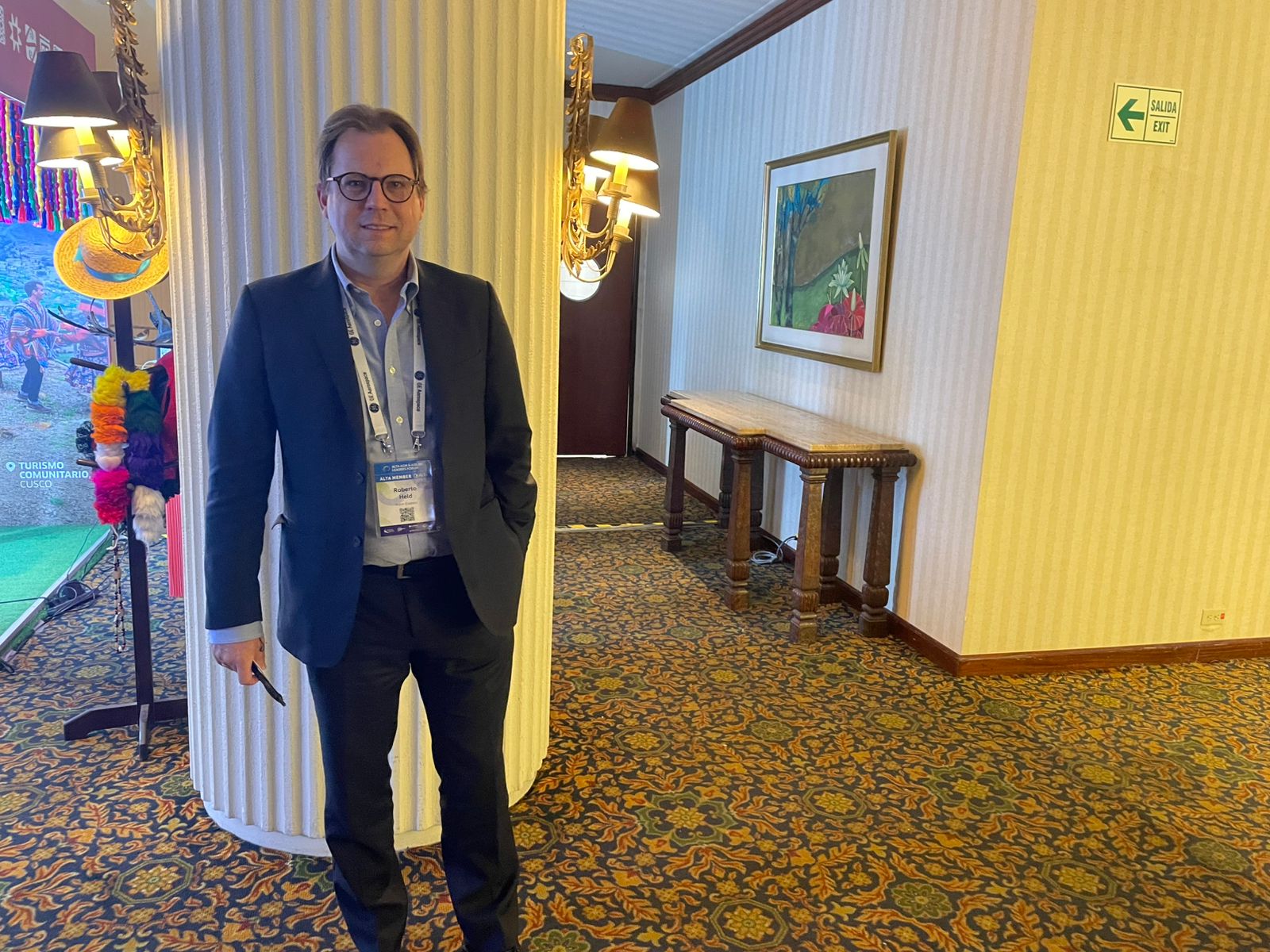"ACMI is a strategic tool": an interview with Roberto Held, Avion Express
ACMI has evolved from an emergency solution to a counter-cyclical resource in South America, says Roberto Held of Avion Express. With a new AOC in Brazil and partnerships like the one with Flybondi, wet leasing now makes it possible to manage "peak seasons."
During the ALTA Airline Leaders Forum 2025 in Lima, Peru, Aviacionline sat down with Roberto Held, Business Development Head for the Americas at Avion Express. The conversation centered on the expanding presence of the ACMI (Aircraft, Crew, Maintenance, and Insurance) company in Latin America, its collaborations with partners such as Flybondi, and its recent acquisition of a strategic Air Operator Certificate (AOC) in Brazil.
Pablo Diaz: Roberto, tell me how Avion Express Brazil is coming along. How are the plans developing, how is the work with Flybondi going, and how do you see the general ACMI landscape in the region?
Roberto Held: We are perhaps the largest ACMI company today for narrowbody aircraft, with 55 Airbus A320s. We have been developing the region for about 4 years now, and we see that airlines are beginning to understand other, more efficient operating models, where we are part of that solution.
We started with operations in Chile for Sky in 2022 and then, in 2023, we developed a large wet leasing project in Mexico with Viva, which exceeded 20 units, demonstrating the model's flexibility.
Last year, we entered Argentina with Flybondi, which became a pioneer of wet leasing in the south. We worked hard with the Argentine authorities to demonstrate the benefits and safety standards. This year, we confirmed that we are repeating with them, which shows that ACMI is no longer just for disruptions, but a strategic tool for the peak season.
The big step was obtaining ANAC certification in Brazil this February. So today we have our two AOCs in Europe (Malta and Lithuania) and this new platform in South America, with aircraft based in Brazil. This is key: we have already shown that from the Brazilian AOC, we can serve the Argentine market, so it gives us a versatile footprint, the ability to deploy aircraft quickly (both ACMI and charter), and the backing of our global fleet.

Pablo Diaz: Sure, and I imagine it gives you a perfect counterweight to the idle capacity of the European low season, right? You use it here during the Southern Hemisphere's peak.
Roberto Held: That is the strategy. The counter-cycle is perfect: when summer begins in the south, winter begins in the north. They are complementary and allow for greater fleet utilization throughout the year. The good thing is that authorities and airlines are already beginning to understand this; they see it's not an issue of one aircraft brand or another, but rather tools that you can incorporate for both 737 and A320 operators.
Pablo Diaz: Speaking of which, it seems that in this region, outdated notions, like routes being "set in stone," are finally falling away. There is greater mental room to accept the ACMI model, which was previously unthinkable. Do you see this as a real evolution in the industry's thinking, or is it pure necessity due to aircraft delivery delays?
Roberto Held: The industry has evolved positively in developing regulation. The engine issue, for example, has made authorities understand that connectivity must be supported. The principle here is how to continue developing the market safely, and for that, authorities are starting to look at EASA and FAA standards.
I have been a proponent of continuing to work on homogenizing regulations; we cannot remain fragmented when the operators are the same in different countries. We are moving towards regulatory consolidation.
Definitely, visions like that of the government in Argentina have facilitated the conversation about connectivity. Brazil is another exceptional case of how ANAC promotes regulatory developments, like Voo Simples. The more seats and operating models there are, the more pleased the authorities will be. In the end, the passenger benefits. We are part of that conversation.
Pablo Diaz: Let's be specific about the Brazil AOC. We see moves like NGSA (GOL) using a Chilean AOC, where crew-related social charges are lower, which is an advantage for managing seasonality. Why did you choose Brazil, which is more complex? What does the Brazilian AOC give you that, for example, Chile would not have?
Roberto Held: Brazil has its particularities. If you want to fly for Brazilian operators, the only way is to have an aircraft registered in Brazil and with Brazilian crews. What is the advantage? It becomes a platform based in Brazil, but with regional reach. As we already saw with Flybondi, we can operate in Argentina from that base.
We have the European EASA standard and now this platform in the region, with aircraft based here, 3 or 4 hours from anywhere, with Brazilian crews. That is the reason: it enables us for the entire region. And it also allows us to mix wet lease operations with charter.
Pablo Diaz: And what happened with the Mexico AOC? You started strong, and then Brazil began to develop.
Roberto Held: We are constantly evaluating the region. Our strategy as a group is to look at counter-cyclical geographies. Just as we were analytical with Brazil, there is the Mexico initiative, but each has its own timing. Right now, the priority is Brazil.
Pablo Diaz: With all the delivery delays for the MAX and the neo, which mean a new aircraft order isn't expected until 2030 or beyond, do you see a revaluation of previous-generation aircraft? Does that situation help you?
Roberto Held: More than the asset, our business is capacity. We don't get into dry leasing. Our model is about how to support airlines that need capacity during certain periods. It is an asset that we move around the world: we understand these situations and try to be part of the solution. The situation with some engines is no secret to anyone, and that is what has highlighted the benefits of wet leasing in the region, which was previously thought to be only for Europe.

Pablo Diaz: Last one, Roberto. There seems to be a trend of "overcorrecting" the low-cost model. Many airlines are bringing back Premium Economy or differentiated cabins. You, with a standardized single-class product, how do you see that move? Have your clients asked you to review that configuration?
Roberto Held: Quite the opposite. We have been following the trend of recent years: product simplification. That is where we can make the aircraft's incorporation easier. We can customize it, but we have found the niches where airlines have a single-class product that they might differentiate by blocking a seat. It is a model similar to Europe's.
The aircraft is an asset that moves: one season it flies in Europe, and later in the southern part of the continent. The industry has evolved, but for us, standardization is a driver. The low-cost dynamic has allowed our 320s to operate in 320 or 737 fleets without major complexity. In some cases, we have had to make adjustments, but that is due to requests from an authority or a country's standards.
In principle, we maintain our standard of 180 seats on the A320ceo. We offer a reliable product that adapts to Latin America. Today, the figure for flights per capita in the region is still low; for many people, it is their first time flying. It is a simple product that doesn't get complicated, and that is where we come in to bring more capacity.
Pablo Diaz: To close, three choices: a book, a movie, and a song.
Roberto Held: A book: The Element. I read it this year, and I found it interesting. A movie: Shawshank Redemption. That is my movie. And a song, I would say Viva la Vida. It's part of the fun, of enjoying the journey, of enjoying the path and the moment.

/https://aviacionlinecdn.eleco.com.ar/media/2025/09/airbus_a320_pr_mld_de_avion_express_operando_para_flybondi_05sep2025.jpeg)
Para comentar, debés estar registradoPor favor, iniciá sesión